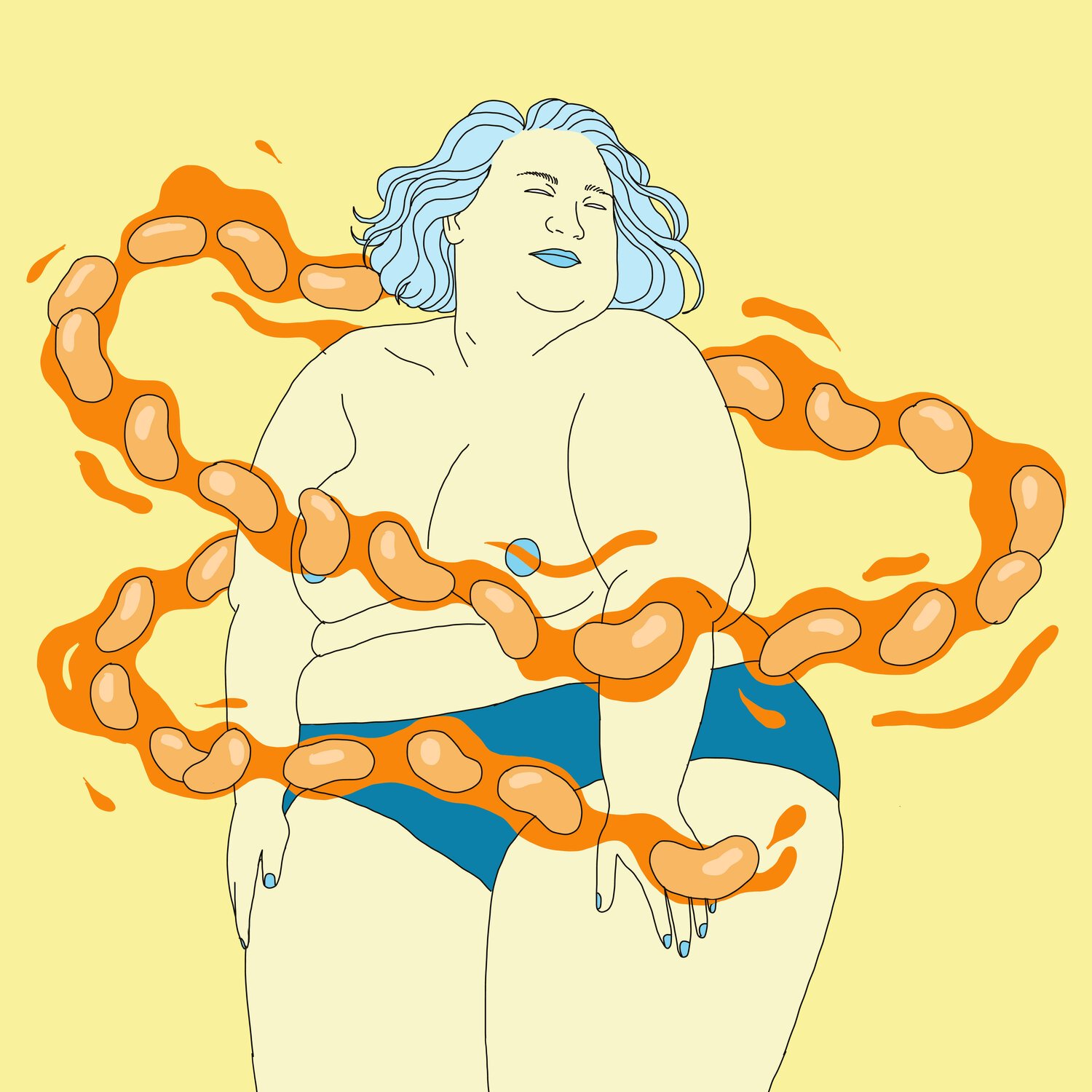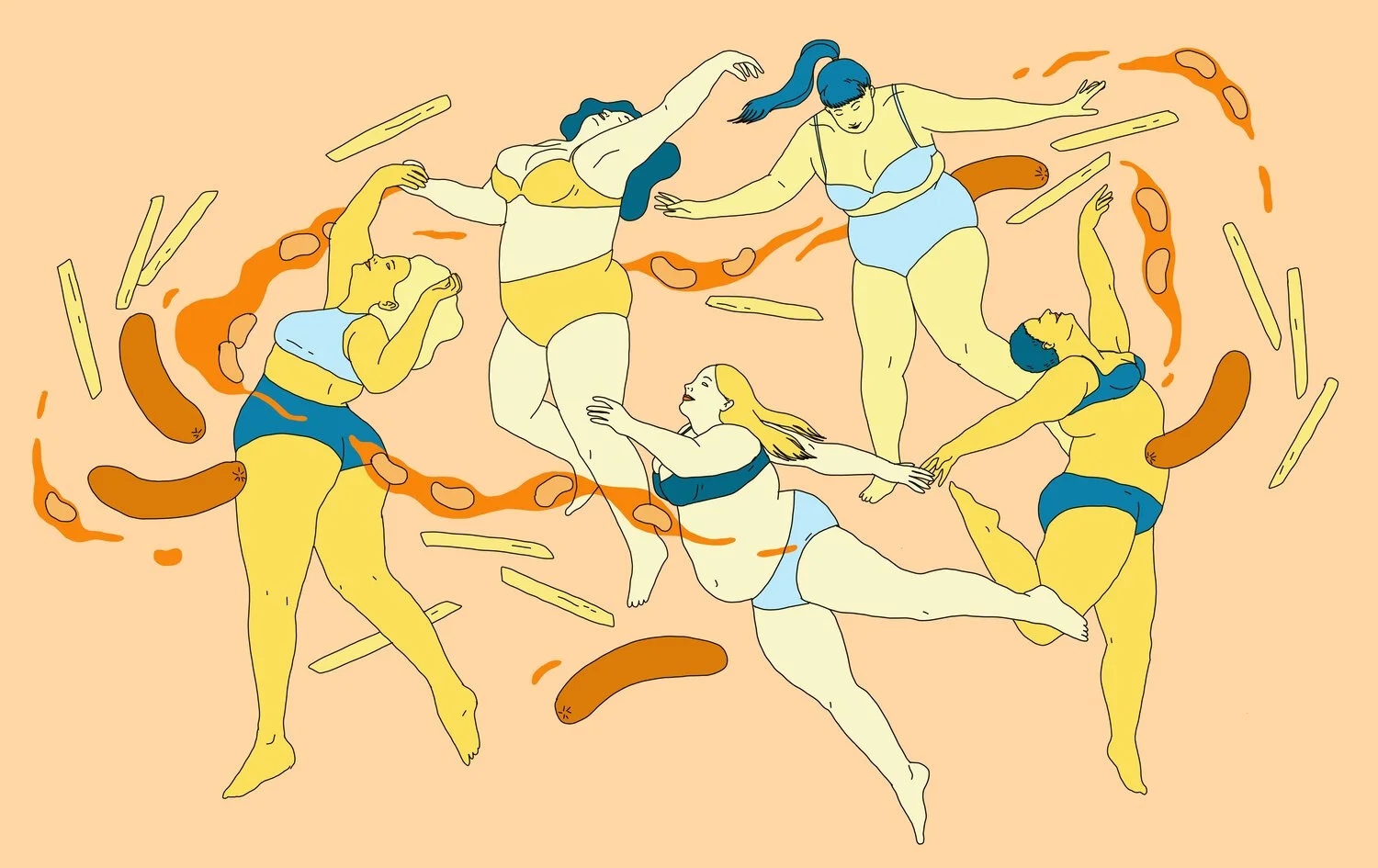Lua
Make it stand out
CW: eating disorders, mental health, body image, self-harm
You’re lying in bed listening to ‘Lua’ by Bright Eyes but you're not skinny, or even standing in a doorway. And while your eyes are smudged black, it's not the kind that looks artful. You don't have the kind of face to look artful.
Cassie from Skins says it's all lovely as she pushes beans about her plate. You know it's not as your gob overflows with gravy and pours onto an old Muse t-shirt that was loose on your brother but tight across your tits.
“Mrs she's too fat, now she's too thin,” bemoans Britney. But you know nobody will ever accuse you of the latter as long as you're standing 5' 5” and fifteen stone.
Russell Brand’s Booky Wook tells you that he was bulimic as a teen to become thin so you try it. For a glorious two months, you can eat and eat and eat without caring about calories as long as you're sick after, but when you get on the scales at the end of your ordeal, you've gained three pounds and broken your own heart.
It's Effie from Skins now and she's in the bath and you know no matter how much worse you get, you could never let someone lift your tits to wash underneath, to care for you like that, so naked and vulnerable.
It’s in every show, actually, where the skinny, crazy girls are carried away to be cared for. You can’t imagine anyone being able to lift you. It’s Winona Ryder in Girl, Interrupted. It’s Natalie Portman in Black Swan. It’s every girl in The Virgin Suicides.
Fat Monica in Friends says she likes food more than shagging, that nobody’s ever shagged her and the audience laughs. You know why nobody would want to fuck her and it’s the same reason nobody wants to fuck you.
You’re watching Wristcutters: A Love Story and thinking how you could never let anyone find your body, because they’d see your body without the saving grace of Primark control pants and a perfectly positioned pillow across the lap.
When you have a diet plan from the local Slimming World instructor, the goal weight is when you can start living your life. When you’re double the weight of all your mates, it’s when you aim to end it all.
*
“In 40 percent of children’s movies, at least one character with obesity is disliked, and in over half of children’s movies, a character with obesity is shown thinking about or eating food.”
“Almost 90 percent of women on TV were at or below normal weight, compared to only 50 percent of American women who are.”
“Studies have analyzed prime time television shows and movies and found that overweight female characters are often teased and insulted by male characters, which is followed by audience laughter.”
When the body positivity movement was created, it was to promote the acceptance of fat bodies in the mainstream. It was - as most movements start out - an underground campaign by those who had no representation at all. It was pioneered by black plus size women, plus size queers and those whose fat identity was more than an Instagram hashtag or viral beauty campaign. It was never meant to be monetised. The revolution will not be televised.
*
In Slimming World, the food that you are not meant to eat - the food that makes you gain weight - are called syns. Because it is a sin to be fat.
In the medical industry, the highest end of the weight spectrum is referred to as morbid obesity. Because the fat bias in medicine is going to kill you before they make medicines to treat fat patients.
In ‘before and after’ weight loss pictures, the praise is heaped on the thinner body. Because being fat is not how you should want to look.
In American courts, there is only one state where fatphobic discrimination in the workplace is illegal. Because not wanting to work with, be around, or help fat people is heavily encouraged.
*
The semantics of understanding our bodies has always been overtaken with a patriarchal view. To simplify, why is the pussy penetrated by the penis? Couldn’t the cock be overcome, be enveloped by a vagina? Switching the power dynamic with the words we use makes for different implications. Let’s infer that our bodies aren’t lesser. Let’s take over the sentences that take over our thoughts, TV screens and technical terms.
We are not eating too much. We are not taking up too much space. We haven’t taken this body positivity thing too far. We don’t cost the taxpayer too much.
We are to be taken seriously.
Words: Gina Tonic | Illustrations: Anna Wanda Gogusey


